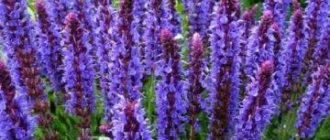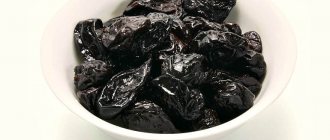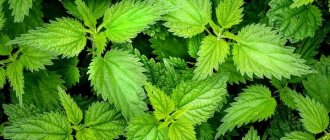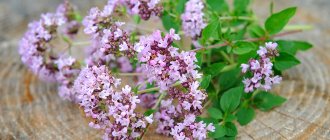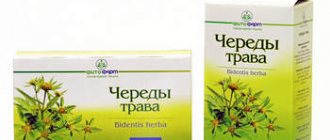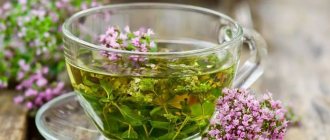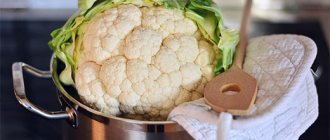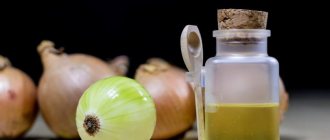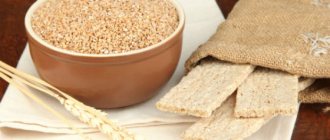Useful properties of yarrow:
The above-ground part of flowering yarrow plants (herb) is used in medicine. It contains essential oil (up to 1%), alkaloids achillein and stachydrine, vitamin K, ascorbic and other organic acids, choline, carotene, bitter and tannins, and trace elements. Yarrow contains a large amount of organic acids, resins, vitamin C, K and (3-carotene.
The presence of essential oil and bitterness makes it possible to classify yarrow as an aromatic bitter, used as a gastric remedy to stimulate appetite, for diseases of the intestines and biliary tract. The essential oil containing azulene acts as a disinfectant, anti-inflammatory and anticonvulsant.
The high potassium content, together with other substances, stimulates the activity of the kidneys; yarrow is used for spring and autumn treatments, mostly in mixed teas. In addition, it stops both external and internal bleeding. Yarrow decoction promotes wound healing. Baths with yarrow enhance the effect of its internal use.
Most often, yarrow decoctions are used as a hemostatic agent for various internal bleeding (pulmonary, uterine, gastrointestinal, renal, hemorrhoidal, nasal). The strongest hemostatic effect of this herb is provided by the alkaloid achillein.
No less popular is the infusion of the green part of yarrow as a remedy that improves the functioning of the digestive organs. Its infusion is drunk to stimulate appetite, as well as for peptic ulcers of the stomach and duodenum, liver diseases, colitis and gastritis.
Yarrow herb has blood purifying properties, removes toxins and waste from the body, and therefore the herb is indicated for all skin diseases, especially furunculosis. The cleansing properties of yarrow and its ability to improve metabolism make this herb an indispensable medicine for atherosclerosis and obesity.
Tannins (tannins) contained in yarrow have a bactericidal, astringent and anti-inflammatory effect; phylloquinones increase the strength of capillary vessels and accelerate wound healing. Yarrow contains various essential oils that give the herb anti-inflammatory, antiviral and antimicrobial effects.
The cardiovascular system is also benefited from the effects of yarrow; its decoction helps lower blood pressure and improves venous circulation. This plant is also used for thrombosis, varicose veins, and hemorrhoids.
For medicinal purposes, a decoction, infusion of herbs and yarrow flowers is used. To heal wounds, you can use yarrow in its raw form, as well as in the form of lotions.
Active ingredients: the aerial part of yarrow during the flowering period contains flavones, the alkaloid achillein, coumarins, aconitic acid, bitter and tannins, resins, organic acids, inulin, asparagine, mineral salts, ascorbic acid, phylloquinone, carotene, choline. The seeds contain up to 21% fatty oil.
The leaves and inflorescences of common yarrow contain an essential oil (up to 0.85%) of a yellowish-green or blue color, which includes cineole (8-10%), azulenes, esters, camphor, thujol, caryophyllene, L-borneol, (3-pinene, L-limonene, thujone, bornyl acetate, salicylic, formic, acetic and isovaleric acids.
Yarrow has a powerful healing effect against acute respiratory diseases, colds, and flu. The herb not only enhances the effect of drugs for lung diseases, but is also an indispensable medicine for bronchitis, pneumonia, tuberculosis, and helps with feverish conditions.
Yarrow is a powerful antiallergic agent that alleviates bronchial asthma.
Yarrow is useful for women to take, as it can cure a number of gynecological diseases. Normalizes the menstrual cycle, has an antimicrobial and healing effect in cases of disorders of the mucous membranes of the uterus (erosions), and is used in the treatment of fibroids.
An infusion of this herb, not only water, but also its extract, is often used in cases where painful menstruation occurs. In this case, the infusion acts not only as an anesthetic, but also as a regulating agent. Yarrow gives very good results in gynecology for various inflammatory processes.
A light decoction of yarrow enhances milk secretion (lactation) in nursing mothers.
As has been proven by scientists, yarrow herb also contains vitamin C, resins, tannin and the alkaloid achillennin (which was already mentioned earlier). It is thanks to all these active substances that the medicinal properties of this plant are explained, which have a positive effect on human health.
Throughout human history, yarrow has been present in medical treatises as a natural cure for many diseases.
Yarrow decoctions are very popular among people.
With their help, you can give up such ailments as bronchial asthma, severe headaches, colds and skin diseases.
A decoction and infusion of water made from this plant helps treat kidney diseases. It is also quite often used in the treatment of kidney stones. An infusion of this herb is used to increase appetite if it is reduced or completely absent. An infusion made from yarrow helps with stomach diseases - gastritis, ulcers and other diseases.
Since ancient times, in folk medicine among the peoples of Siberia, infusions from this plant have been used for stomach disorders, stomach ulcers and gastritis, and malaria, and it is also very popular as a diaphoretic. In Karachay-Cherkessia, heart disease and stomach diseases are often treated with a decoction of yarrow; in addition, such a decoction also acts as an expectorant.
Fresh flowers and leaves of yarrow contain volatile phytoncides that have a detrimental effect on paramecium and air microflora. Extracts of dried flowers and yarrow leaves contain phytoncides that have a protistocidal effect on paramecium and a bacteriostatic effect on staphylococci (golden and white) and non-hemolytic streptococcus.
The aerial part of yarrow is a component of many medicinal teas (teas) sold in pharmacies - appetizing, stomachic, laxative.
What diseases does yarrow treat and what does it help with?
Yarrow is beneficial for the human body for a wide range of diseases. Among the indications for the use of herbs, traditional medicine names:
- bleeding - internal and external, except arterial;
- chronic and acute infections;
- atherosclerosis;
- cystitis and glomerulonephritis;
- pyelonephritis;
- pancreatitis;
- hepatitis and gallbladder diseases;
- intestinal colitis and dysentery;
- peptic ulcer;
- acne and boils;
- diathesis and eczema;
- obesity.
The herb can be used for traumatic skin injuries - burns, wounds and abrasions. It also benefits hair loss.
Medicinal properties of yarrow flowers
The flowers of a perennial plant have pronounced healing powers. When used for medicinal purposes, yarrow:
- has anti-inflammatory and antimicrobial effects;
- helps with intestinal disorders and stops diarrhea;
- promotes rapid healing of cuts and suppurations;
- accelerates digestion and metabolic processes;
- has an antipyretic effect;
- strengthens the walls of blood vessels and normalizes phospholipid metabolism;
- removes toxic substances and waste from the body.
Indications for the use of yarrow herb also include diabetes mellitus and a tendency to bleed.
Is it possible to drink yarrow decoction and what does it help with?
For diseases, yarrow is usually taken in the form of water infusions and decoctions. Making drinks based on raw materials is not only possible, but also very useful. If proven algorithms are followed, medicines retain all valuable substances and help with inflammatory diseases, digestive disorders, and circulatory disorders.
The healing properties of yarrow for children
The healing properties of yarrow are used for nosebleeds in children, severe colds and abdominal pain. However, offering plant-based products to children under 6 years of age is strictly prohibited. The herb can have a negative effect on the central nervous system, provoke the development of hypotension and damage the health of the joints. If necessary, older children are allowed to be given light teas with a weak concentration.
The dosage of medicinal tea for a child for the first time should not exceed 20 ml
Attention! The herb has strict contraindications and can cause allergies. Before offering it to your child, you should consult your pediatrician.
The healing properties of yarrow for men
Men are recommended to drink herbal drinks for inflammatory diseases of the genitourinary system. The plant helps with prostatitis and urethritis, prevents the development of tumors. Baths with decoctions and infusions are indicated for sexually transmitted infectious diseases.
What are the benefits of yarrow herb for women?
The beneficial properties and contraindications of yarrow for women are of interest in gynecology. The herb is used to treat mastopathy, thrush and tumors. Decoctions and infusions normalize hormonal levels, improve well-being during menopause and painful menstruation. When using the herb, libido increases, vigor and general tone are maintained.
We recommend reading: Burdock juice: what it treats, what it helps with, benefits and harms, reviews
Is it possible to drink yarrow during pregnancy?
During the period of bearing a child, taking infusions and decoctions of medicinal plants is strictly prohibited. The herb can not only lead to miscarriage, but also contribute to the development of congenital diseases of the central nervous system and skeletal system in the fetus. In the third trimester, taking the plant increases the risk of thrombosis in a woman.
Is it possible to drink yarrow during menstruation?
The medicinal properties of yarrow herb in gynecology improve blood clotting; the plant is often used to stop bleeding. It can be used when menstruation is too heavy and painful. The herb will help minimize blood loss and prevent the development of anemia.
Is it possible to drink yarrow for pancreatitis?
The medicinal plant has a beneficial effect on the pancreas. When consumed correctly, it normalizes the production of digestive enzymes, prevents inflammation and protects the organ from irritation by bacteria and toxins.
You can use medicinal herbs for pancreatitis only during the period of remission. In the acute phase of the disease, any decoctions and infusions should be excluded.
Is it possible to drink yarrow for gastritis?
The medicinal properties of common yarrow speed up digestive processes and improve appetite. The herb is of great benefit for gastritis with reduced production of gastric juice. It eliminates heaviness in the stomach and promotes rapid and high-quality absorption of food.
In case of high-acid gastritis, decoctions should be avoided, they will irritate the mucous membranes
Yarrow contraindications:
It should also be noted that yarrow is a poisonous plant, which is why you need to be especially careful when using it internally, and indeed when using it externally too. If you take medications containing yarrow for quite a long time, this can lead to skin rashes or dizziness.
Preparations that contain yarrow are quite dangerous, because the plant itself is poisonous, especially if these drugs are taken orally. And this despite the fact that the list of diseases that this drug helps treat is, in fact, quite impressive.
Preparations containing yarrow are contraindicated for people with low blood pressure.
Some people develop a specific skin rash not only when consuming yarrow in the form of baths, but also when touching it, often even while walking through the meadows where it grows abundantly. Naturally, these people cannot tolerate either tea or yarrow juice. In such a case, treatment should be interrupted immediately.
It is especially worth noting that the use of yarrow juice is contraindicated at any stage of pregnancy.
Yarrow can be used safely only under the supervision of a specialist herbalist.
In addition, it should be remembered that treatment with medicinal herbs requires compliance with THESE RULES:
Contraindications
The plant can help in a variety of situations, but we must not forget about the contraindications for taking yarrow. Its use is not recommended in a number of cases:
- with increased blood clotting, as well as with a tendency to develop blood clots;
- during pregnancy;
- Restrictions include children under 6 years of age;
- with increased acidity of the stomach (a decoction or infusion of this plant, especially strong, can cause heartburn);
- with low blood pressure, grass can lower it even more;
- in case of individual intolerance - sometimes the plant provokes allergic reactions, the symptoms of which are red spots on the skin, itching, swelling. If such signs are noticed, then the use of yarrow preparations should be abandoned.
Also, do not overuse infusions from the plant. Frequent use may cause dizziness, nausea, and fainting. There is no need to brew the herb too strongly.
Medicinal properties of yarrow:
The main benefit of yarrow is that it contains choline and has pronounced bactericidal activity. Therefore, preparations of the plant and the infusions that include it have been used for a long time to treat the following conditions:
- for bleeding of various origins;
- to normalize metabolism;
- to improve digestion;
- as an anti-inflammatory and wound-healing agent;
- as a means of preventing suppuration;
- as an enhancer of bile secretion;
- with hypoacid gastritis;
- for kidney stones;
- for diseases of the gastrointestinal tract and duodenum;
- as an ingredient in stomachic and appetizing teas;
- as a cosmetic product.
Yarrow for women:
✓For uterine bleeding, drink yarrow juice 40 drops 3 times a day or infusion: 1 tbsp. pour 300 ml of boiling water over a spoonful of herbs with inflorescences, leave for 1 hour in a warm place, and filter. Take 1/3 cup of Zraz per day after meals as an anti-inflammatory agent for diseases of the uterus.
✓ For irregular menstruation, urolithiasis - 1 tbsp. Infuse a spoonful of dry yarrow herb in 200 ml of boiling water for 1 hour, strain. Take 1 tbsp. spoon 3-4 times a day before meals.
✓ In case of menstrual irregularities, toxicosis of pregnant women: mix 4 parts of wormwood herb and 1 part of herb with yarrow flowers. 1 tbsp. pour a spoonful of the dry crushed mixture into 1 cup of boiling water, leave in a sealed container for 15 minutes, cool for 45 minutes, strain. Take 14 glasses 3 times a day before meals.
✓ To stimulate the secretion of milk during breastfeeding, use a herbal decoction: 15–20 g of dry crushed raw materials per 1 glass of warm water, boil for 15 minutes, leave for 1 hour, strain, bring the volume to the original volume. Take 1 tbsp. spoon 3 times a day before meals.
✓ For hypogalactia (decreased milk production), take an infusion of yarrow; preparing the infusion: 1 tbsp. pour 200 ml of boiling water over a spoonful of dried herbs and leave in a sealed container for 1 hour, strain; drink 1 tbsp. spoon 4 times a day before meals.
✓ Yarrow juice is taken as a milk extractor. 1 teaspoon 3 times a day.
✓ Against spontaneous, threatening miscarriage: grind 100 g of herb with yarrow flowers and 50 g of peppermint herb into a fine powder. From the first days of pregnancy, take 0.5 teaspoon of the mixture powder with water, 3 times a day before meals.
Hemostatic agent for heavy menstruation, fibroids, inflammatory diseases of the uterus. Yarrow: pour 15–20 g of chopped greens into a thermos with 1 glass of boiling water overnight, strain. Drink 1 tbsp. spoon – 1/3 cup before meals.
✓ Women's diseases. An infusion of a mixture of calendula and yarrow flowers or tea is prepared at a rate of 1:10 from the dry mixture using a hot method and 1–2 tbsp is used. spoons 2-3 times a day.
✓ Yarrow tea helps to survive the menopausal period relatively easily.
✓ For uterine bleeding, drink tea from yarrow flowers, 3 glasses a day.
Dosage forms
There are several methods that show how to brew yarrow to obtain the required dosage form.
Decoction
Yarrow decoction is used for stomach diseases. Reduces blood pressure, eliminates dermatological skin lesions, strengthens hair, and is used in the treatment of colds. It is a preventive measure for pathological disorders of the liver and genitourinary system.
For preparation:
- 2 tbsp. l. put the herbs in an enamel pan.
- Pour 200 ml. water.
- Place on the stove.
- Boil on low for 30 minutes.
- Cool.
- Strain.
Use, divided into three servings, drink throughout the day.
Infusion
Prepare an infusion of yarrow from 2 tsp. pre-chopped herbs:
- The raw materials are poured into a thermos.
- Pour 300 ml. boiling water.
- Apply after two hours.
For problems with the gallbladder, diseases of the bile ducts, drink 4-5 tbsp every 6 hours. spoons
To get rid of bleeding, you will need two tablespoons of yarrow herb, which is infused for 2 hours in boiling water - 250 ml. Consume 50 ml after 6 hours.
Ointment
In summer, crush the collected inflorescences with the leaves, taking both components in equal parts. Add animal fat, maintaining a 2:1 ratio. If you make an ointment in the winter season, mix Vaseline with herbal infusion in a 4:1 ratio. To enhance the therapeutic effect, homemade ointment is mixed with crushed streptocide tablet.
Lotions
For the treatment of difficult-to-heal wounds 4 tbsp. l. crushed yarrow herb is infused in 400 ml. boiling water for four hours. Soak cotton pads in the resulting liquid. Apply to the affected areas several times a day.
Juice
Juice squeezed from fresh herbs is effectively used in the treatment of runny nose. Use 2-3 drops daily, four times. The course does not exceed five days.
The product helps stop bleeding from cuts, eliminate inflammation from the skin or mucous membranes. To enhance lactation, improve appetite, eliminate fatigue, the juice is taken orally, sweetened with honey, 1 tsp. in eight hours.
Tincture
Yarrow tincture, effective for bleeding, is prepared from dry crushed herbs.
- Pour five tablespoons of raw material into a glass bottle.
- Pour in half a glass of vodka.
- Cork.
- Keep, shaking daily, for 10 days in a dark cupboard.
Drink 30 drops before meals. The duration of the course is 30 days. The tincture helps with intestinal spasms and angina.
Tea
For hemorrhoids, drink yarrow tea at any time by brewing two tablespoons of crushed leaves in a liter of boiling water in the morning. After half an hour, filter.
Yarrow for gastritis:
To increase appetite and improve digestion, for stomach ulcers, gastritis, diarrhea, use the following infusion of yarrow: 1 tbsp. pour a spoonful of dry herbs into 1 cup of boiling water, leave, wrapped, for 1 hour, strain. Take 1 tbsp. spoon 3 times a day 20 minutes before meals.
✓ For problems of the gastrointestinal tract, such as gastritis, ulcers and other diseases that lead to pain in the stomach and intestines, as well as indigestion. Brew 1 teaspoon of yarrow with two glasses of boiling water. Take 15–20 minutes before meals, 1 tbsp. spoon. In case of low acidity of gastric juice, it is recommended to take 1/3 cup of freshly prepared infusion.
✓ For acute gastritis, 1 tbsp. Infuse a spoonful of dry yarrow herb in 200 ml of boiling water for an hour, strain. Take 1 tbsp. spoon 3-4 times a day before meals.
For chronic gastritis and peptic ulcers, a decoction of yarrow herb is useful. Pour 250 g of boiling water over a teaspoon, boil for 5-10 minutes over low heat, strain. Drink 1/2 glass 3 times a day. To enhance the effect, you can eat honey.
✓ For chronic gastritis and gastric ulcers, take a decoction of yarrow and plantain herbs. Pour 1 teaspoon of the mixture (in equal parts) into 250 ml of boiling water, boil for 5-10 minutes over low heat, strain. Drink 1/2 glass 3 times a day for 25–30 days.
✓ For gastritis with high acidity, use the following mixture: yarrow herb, St. John's wort herb, chamomile inflorescences - 2 parts each, celandine herb - 1 part. 1 tbsp. Brew a spoonful of the mixture with 1 cup of boiling water. Take 1/3 cup 4 times a day.
The use of yarrow herbs and flowers in folk medicine
There are many ways to use yarrow with its beneficial properties and contraindications. Traditional medicine offers effective and safe herbal recipes.
How to take yarrow infusion
An aqueous infusion from a medicinal plant is often used to treat coughs and bronchitis, to stimulate appetite and speed up digestive processes. One of the recipes suggests:
- pour 15 g of finely chopped herbs with 200 ml of warm water;
- simmer covered in a water bath for 15 minutes;
- strain and stand for another 45 minutes.
The finished infusion is topped up to the original volume and taken four times a day with a large spoon.
How to take and for how long can you drink yarrow decoction?
A decoction of yarrow is taken for diseases of the kidneys, respiratory tract and intestines. To prepare the product according to one of the recipes you need:
- leave the crushed leaves in cold water for several hours;
- Boil on fire under the lid for 30 minutes;
- filter and cool until warm.
Take a decoction of no more than 100 ml, and you can drink three servings of the medicine per day. Long-term use of a home remedy may cause side effects. In total, you should use the decoction for medicinal purposes no longer than two weeks in a row.
How to brew and take yarrow for the stomach and intestines
The use of yarrow decoction for gastritis in the non-acute phase helps eliminate pain and discomfort in the stomach and intestines. Prepare the following infusion:
- grind a small spoon of dry herb;
- Brew 500 ml of boiling water for 15 minutes.
The strained product is taken in a large spoon 20 minutes before meals.
How to take yarrow decoction for pancreatitis of the pancreas
In chronic pancreatitis, the medicinal herb helps support pancreatic function and prevent another exacerbation. You can prepare this remedy:
- yarrow, calendula and corn silk are mixed together in a small spoon;
- pour 200 ml of water into a large spoon;
- bring to a boil, and then leave for four hours and filter.
We recommend reading: Beneficial properties of Tibetan raspberries and contraindications
Take the product twice a day, 150 ml.
Pancreatitis can be treated with yarrow only during a calm period of the disease.
Use of yarrow for hemorrhoids
The medicinal properties of yarrow for hemorrhoids are most often used externally. For example, healing lotions have a good effect. They do it like this:
- a piece of clean cloth or gauze is moistened in a regular decoction of the plant;
- apply a compress to the anal area for 20 minutes.
The procedure must be repeated three times a day. In addition, warm baths with the addition of decoction are of great benefit.
Yarrow for oncology
Yarrow can be taken for stomach cancer - an infusion is prepared for this. The recipe looks like this:
- pour a large spoonful of dry raw material into a glass of hot water;
- heat for ten minutes under a lid in a water bath;
- remove from heat and leave for 45 minutes.
The finished product is added to a glass with clean water and taken 80 ml three times a day on an empty stomach.
Attention! You can use medicinal herbs for cancer only with the permission of the oncologist and in combination with medications.
Yarrow for the liver
For liver diseases, it is useful to use the plant in combination with honey and other natural ingredients. Traditional medicine offers the following recipe:
- 200 g of honey are heated in a water bath;
- add a small spoon of chopped yarrow herb;
- add two large spoons of corn silk and milk thistle seeds;
- Allow the product to harden without straining it.
You need to take the mixture three times a day, a small spoon on a full stomach.
Yarrow for cystitis
For cystitis in women, the medicinal plant is used to prepare an infusion. You can use this recipe:
- brew two small spoons of herb in a glass of hot water;
- leave covered for an hour;
- pass the finished infusion through cheesecloth.
When warm, the product is consumed four times a day, 1/4 cup.
How to brew yarrow depending on temperature for children
At elevated temperatures in children over six years of age, you can prepare a healing mixture using yarrow. They do it like this:
- 3/4 large spoon of dry herb is mixed with 10 dried linden flowers;
- pour 500 ml of boiling water;
- after seven minutes, add a few slices of lemon.
The product, cooled to a warm state, is offered to the child twice a day.
You can add a little honey to your child’s medicinal mixture.
The benefits and harms of yarrow tea are optimally balanced; a drink with a weak concentration does not lead to negative effects.
Yarrow to improve potency
When potency weakens in men, instructions for using yarrow tincture are in demand. The remedy is prepared as follows:
- two large spoons of dry grass and flowers are poured into a glass of vodka;
- leave in a warm and dark place for a week;
- After the expiration date, strain.
You need to take the medicine 20 drops three times a day on an empty stomach.
Yarrow for hemorrhoids:
✓ For hemorrhoids, irrigation of a decoction of mistletoe, yarrow, water pepper, oak bark, herb and dead nettle flowers helps - 10 g each, and 15 g of mistletoe. Boil for 15 minutes over low heat. Should be done after bowel movement.
✓ The following herbal collection helps with hemorrhoids: rhubarb root - 10 g, love spell herb - 20 g, peppermint leaves - 50 g, yarrow herb - 20 g. Brew one tablespoon of the collection with a glass of boiling water, stand for 30 minutes, strain. Drink 2 times a day half an hour before meals.
✓ For hemorrhoids, enemas are good: 50-100 ml of a 20-30% solution of honey in warm water (38-40 °C), prepared immediately before administration. First, a cleansing enema is performed. Honey can also be administered in mixtures with various medicinal substances and herbs (tannin, belladonna, St. John's wort, chamomile, yarrow, etc.).
Yarrow for diarrhea:
With diarrhea and a tendency to flatulence, the following collection helps: wormwood herb - 10 g, horsetail herb - 20 g, yarrow herb - 20 g, cinquefoil rhizome - 10 g. 2 teaspoons of the collection per glass of boiling water. Set aside and strain. Drink 1–2 glasses a day.
✓ For flatulence and a tendency to diarrhea, the following collection is recommended: wormwood herb - 10 g, plantain herb - 20 g, yarrow herb - 20 g. 2 teaspoons of the collection per glass of boiling water, leave. Take 1–2 glasses per day.
Based on the book by Yuri Konstantinov “Yarrow, fireweed. Natural medicines."
